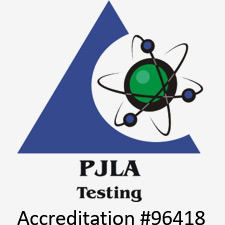Jordi Labs is a leading expert in polymer chemistry and polymer deformulation. Supported by over 30 years of successful polymeric resin development and polymer characterization, our organization is rich with a deep understanding of polymer systems from a synthetic and analytical perspective.
With Ph.D. polymer chemists and a team of well trained scientists, Jordi Labs is able to provide clients with expert solutions specialized to nearly all synthetic polymers and plastic products. Our staff strives to understand your problem and to ask the right questions to understand your goals for the project.
EXAMPLE
The following is an example of how Jordi marries polymer expertise with a thorough knowledge of analytical testing to investigate and solve a material failure:
Goal
To investigate the potential cause of failure in polycarbonate (PC) parts.
Nature of Failure
Described as cracking observed at the surface of the PC parts.
Chemical Factors to Consider
Several chemical factors could affect the final physical properties of PC materials and polymers:
- Polymer chemistry
- Additives type and quantity
- Molecular weight
- Presence of unknown contaminants
Proposed Strategy
To examine the chemical and physical properties above, seeking to identify differences between good and bad products.
Phase 1 – Identification – Qualitative Analysis
- Pyrolysis Mass Spectrometry (PYMS) and Liquid Chromatography Mass Spectrometry (LCMS) to identify polymers, polymer additives (antioxidants, slip agents, stabilizers, etc) and unexpected organics.
- Fourier Transform Infrared Spectroscopy (FTIR) to aid in the interpretation of the PYMS results and to confirm the general class of the polymer.
- Gel Permeation Chromatography (GPC) to compare the molecular weight of the samples to look for evidence of polymer degradation and to help explain the observed physical properties.
- Proton Induced X-Ray Emission (PIXE) to determine the elemental composition of the material and to help characterize potential inorganic fillers.
- Thermogravimetric Analysis (TGA) to determine the percentage residuals, and to obtain a decomposition profile for the material.
- Differential Scanning Calorimetry (DSC) to examine the thermal properties of the material, including melting temperature (Tm), glass transition temperature (Tg) and possibly crystallinity.
- Karl Fischer Titration to determine moisture content.
Phase 2 – Quantitative Analysis
- High Performance Liquid Chromatography (HPLC), Gas Chromatography Mass Spectrometry (GCMS) or Liquid Chromatography Mass Spectrometry (LCMS) to quantify the additives and other organic compounds identified in Phase I, if they are organic in nature. The technique(s) we choose for quantitation depends on the chemistry of the compounds detected during Phase I.
Deliverables
- Comprehensive final report providing a thorough interpretation of all analytical data obtained.
- A list of chemical ingredients, their levels and a comparison of the two materials to provide a conclusion as to what the root cause of the failure could be.
- All clients can benefit from a closing consultation call to discuss final results and their implications.
Whether you are interested in understanding the structure and chemistry of your plastic, investigating a product failure or looking to understand how to achieve the final properties you need to successfully market your product, Jordi Labs can help. We look forward to speaking with you soon and to helping you achieve your analytical goals.




